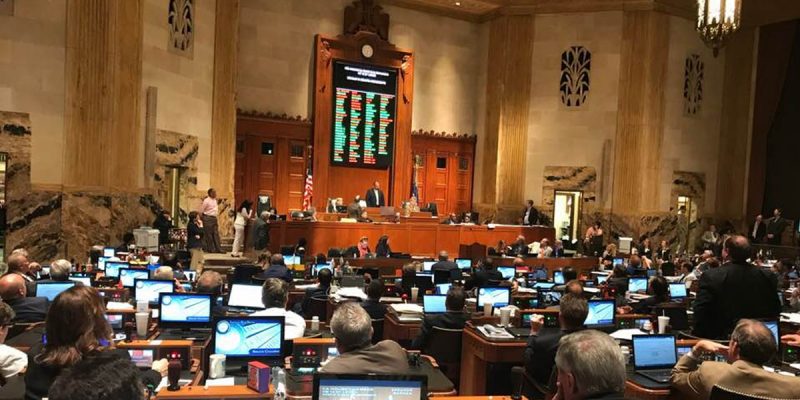Thirty years ago in many parts of the state, running for the legislature, or for that matter any office outside of the most conservative precincts, while having an “R” by your name on the ballot proved to be more of a liability than an asset.
In addition to inviting the automatic opposition of over 90% of the black vote, this was last hurrah of a sizable show of force of the so-called “Yellow Dog Democrats”, a by-product of multigenerational southern (i.e., Confederate) hostility to the “Yankee” GOP and older voters still clinging to FDR’s class warfare mindset.
The name described the mentality of those who would sooner cast their ballot for a yellow dog before a representative of the Party of Lincoln.
But as these voters literally died off, they were replaced with folks who no longer inherited such irrational political resentments and dumped the familial legacy attachment to the Democratic Party as seeing that faction for what they are: socialists.
Starting with Mike Foster’s governorship and Newt Gingrich’s Republican takeover of Congress and then solidifying during the Bush v Gore race, being affiliated with the Republican Party, even if merely as a ballot listing, became an asset.
In this Trump Era in Louisiana it became obligatory in much of the state.
And so politicians who are not truly conservative embraced, out of convenience, a Republican political affiliation, fearing the loss of substantial votes of committed Republicans.
The result has been a dramatic increase in Republicans in the state legislature.
But that also led to the GOP legislative caucus becoming a less conservative cohesive unit, the inverse of what the Democrats experienced when Louisiana was essentially a one party state.
But after John Bel Edwards’ reelection as governor and his predictable tack to a more leftward course (as he has no more need to pose as centrist any further), Republican legislators find themselves in a quandary.
Bills the governor would not have dared vetoed pre-2019 have now been rejected by the Fourth Floor as the rest of the state awakens to the reality that yes Louisiana, there is a Democratic governor.
Edwards’ 28 vetoes resemble a reference sheet designed to impress the US Senate’s Democratic caucus than the Louisiana electorate and there’s a far greater likelihood that he’ll one day stand before the former than the latter for his next career endeavor.
But right now this isn’t about the governor but the Republican legislative delegation in Baton Rouge.
JBE did his deed; what will the Republican super majority in the State Senate and the near-super majority in the House of Representatives do this week?
And after the smoke clears and senators and representatives exit the State Capitol, what later action will be taken by Republican voters in the respective districts of GOP legislators who voted one way in the regular session and another in the veto session?
Those contrasting votes are going to follow legislators home and challengers will emerge in 2023 to remind people of them.
Advertisement
And if 2022 shapes up to be the electoral boomerang to the 2020 cycle (as is generally the case in midterms), that political energy is still going to be around in the following year’s state elections.
Conservative voters are no longer going to accept their representatives and senators having an R by their names only on election day and a question mark by their names while in session.
The Schlegel-Connick special election in April signaled this change in mindset as for the first time since 1987 a member of one of the most powerful political families in the New Orleans area lost an election.
While the voters knew the Connick name, they also knew precisely how Laurie Schlegel was going to vote, and despite being outspent and “out endorsed” Schlegel pulled off a major upset.
And it should surprise nobody Schlegel only weeks into taking office is handling the Senator Beth Mizell’s “women in sports” bill on the House side.
When it comes to the philosophy of elected officials, the public has grown weary of having to guess what’s behind Curtain #2.
The Mitt Romney model of Republican politician is proving to be a bad fit in Utah, let alone the Deep South.
This week in the unprecedented veto session we are going to find out precisely what kind of Republican legislative majority we actually have.
Advertisement
Advertisement

